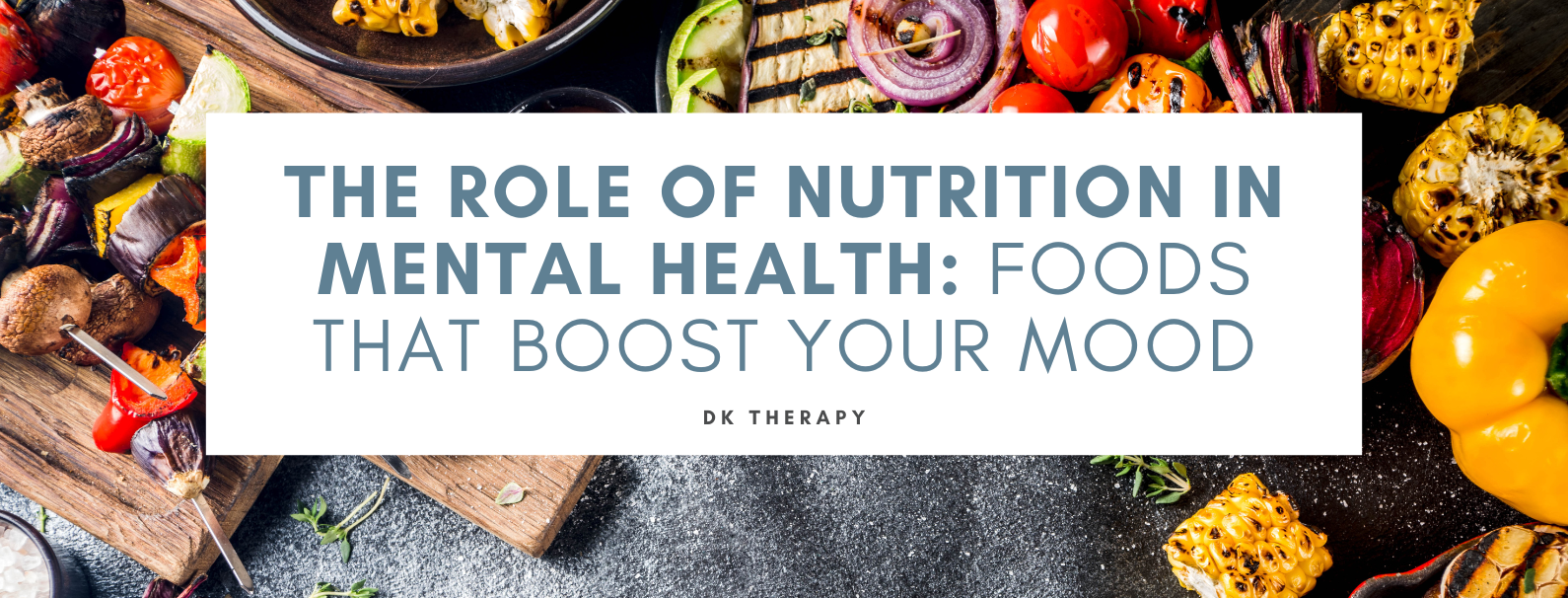
Food isn’t just fuel for our bodies. It also plays an important role in how we think, feel, and function emotionally. Many common nutrients help regulate brain function, reduce inflammation, and support stable moods.
Having the right food in your diet can have a noticeable impact on your well-being, so if you’re feeling a little low as the season changes, take a look at some kinds of food that can help out.
 Omega-3 Fatty Acids
Omega-3 Fatty Acids
Found in fatty fish such as salmon, sardines, and trout, omega-3s tend to reduce depression and anxiety symptoms. They support the brain’s cellular structure, help produce serotonin, and reduce inflammation in the body. If you’re vegetarian or vegan, chia seeds, flaxseeds, and walnuts are plant-based sources of omega-3s.
Leafy Greens
Leafy green vegetables like spinach, kale, and chard are packed with folate, which is a B vitamin associated with mental well-being. Folate helps the body produce dopamine, which is a neurotransmitter that regulates mood.
Additionally, leafy greens are rich in magnesium, which helps manage stress and anxiety levels. They’re full of antioxidants as well, which combat inflammation in the brain, and may reduce the risk of both depression and cognitive decline.
Probiotics
Probiotics, which are found in fermented foods like yogurt, kefir, sauerkraut, and kimchi, help maintain a healthy balance of gut bacteria. A healthy gut microbiome is associated with lower stress and anxiety levels, as it produces certain neurotransmitters.
Dark Chocolate
Dark chocolate contains several mood-boosting compounds, including caffeine, theobromine, and N-acylethanolamine.
Additionally, dark chocolate encourages the release of endorphins and increases serotonin levels in the brain. Both of these contribute to a feeling of happiness and satisfaction. Choose dark chocolate with at least 70% cocoa content for the best health benefits, and enjoy it in moderation to avoid excessive sugar intake.
Whole Grains
Whole grains like oats, quinoa, brown rice, and barley are high in complex carbohydrates. Unlike refined carbs, which can cause spikes and drops in blood sugar, complex carbohydrates provide a steady release of glucose to the brain. This can help to keep energy levels stable throughout the day.
Whole grains are also a great source of fiber, which supports healthy gut function and promotes holistic well-being. Including whole grains in your meals can help prevent mood swings and contribute to a greater sense of balance overall.
Berries
Berries are quite rich in antioxidants, which help fight oxidative stress in the body. These antioxidants are known to improve cognitive function and protect brain cells from inflammation. Some studies suggest as well that routinely consuming berries can reduce symptoms of depression, improve memory, and even slow down age-related cognitive decline.
Nuts and Seeds
Nuts and seeds, like almonds, walnuts, sunflower seeds, and pumpkin seeds contain magnesium, zinc, and B vitamins. Not only do these all support one’s mental health, but nuts and seeds also contain tryptophan, which is an amino acid the brain uses to balance serotonin levels.
Magnesium has also been shown to relieve symptoms of anxiety and depression. A small handful of nuts or seeds daily can provide a powerful mental health boost.
There’s a significant connection between diet and mental health, and making small dietary changes can have an impact on how you feel emotionally. By following a healthy diet, you can naturally support your mental health, improve your energy levels, and promote your own emotional resilience.
As always, though, talk to a healthcare professional for personalized advice about food and nutrition, especially if you’re managing a mental health condition or any other sort of health disorder.
If you’re struggling and you’d like to reach out to a therapist, contact DK Therapy at your convenience and schedule an appointment with our office.




